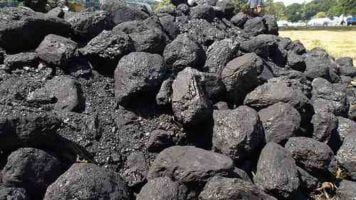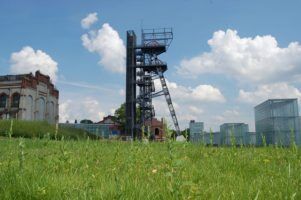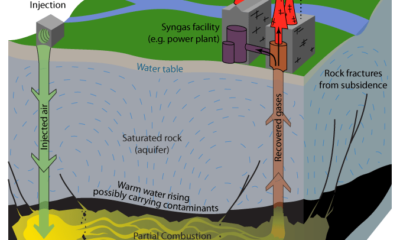

Energy
Scotland: Moratorium on underground coal gasification
The Scottish Government has today put in place a moratorium on underground coal gasification (UCG) in Scotland. This is separate to the existing moratorium on onshore unconventional oil and gas, including hydraulic fracturing – and comes as ministers have also informed Parliament that the Government will carry out a thorough and wide-ranging research process into the potential impacts of such onshore techniques.
The moratorium on onshore unconventional oil and gas was announced by the Energy Minster Fergus Ewing in January, when he set out plans for a full public consultation and outlined a programme of research work including:
– a full public health impact assessment
– further work to strengthen planning guidance
– further tightening of environmental regulation.
Since then the Government has undertaken a series of meetings with the key stakeholder groups including environmental NGOs, industry, local government and community organisations. Those meetings have helped inform the government’s decision to extend the planned work which will also now also include:
– transport impacts research,
– seismic monitoring research,
– consideration of decommissioning and aftercare,
– climate change impacts research,
– and economic impacts research.
This work comes further to an independent Scientific Panel report on unconventional oil and gas which has already been undertaken.
Ministers published the planned research and public consultation timetable today and confirmed that the public consultation will begin once the research process has been finalised and the results published. This will give the public a chance to study the research reports before taking part in the public consultation. The detailed evidence-gathering phase will take place between now and next summer, with the consultation phase, covering engagement, public consultation and analysis, due to conclude in spring 2017.
In line with the cautious, evidence-based approach adopted by the Scottish Government, a separate moratorium on Underground Coal Gasification (UCG) will allow the necessary time for full and careful consideration of the potential impacts of this new technology. Ministers have been clear that these are two separate technologies, subject to different licensing regimes, and hence will be considered separately. The Scottish Government has appointed Professor Campbell Gemmell, former CEO of SEPA, to lead an independent examination of the issues and evidence surrounding UCG. This will include working closely with communities and stakeholders to understand the issues of most concern to them.
Mr Ewing said: “The studies announced today constitute an extremely thorough and wide-ranging examination of the potential impacts of unconventional oil and gas and underlines the Scottish Government policy of taking a precautionary, robust and evidence-based approach to this technology in stark contrast to the gung-ho approach of the UK Government.
“Ministers have held meetings with representatives of environmental non-governmental organisations, community groups, industry bodies and local government. Those meetings have helped us to prepare for the research and public consultation processes. As a result, we have planned a robust and thorough research process and a wide-ranging and participative consultation process.
“The public will understandably wish to study the outcome of the research process and thus the public consultation will not begin until the findings of the research process have been published.
“Scotland’s moratorium into onshore unconventional oil and gas extraction was welcomed by both environmental campaigners and industry representatives. It will remain in place as the research and public consultation is undertaken.
“We should never close our minds to the potential opportunities for Scotland from new energy technologies – but we must also ensure that community, environmental and health concerns are all fully taken account of. The research we propose in this timetable will give all interested stakeholders important information to allow a more informed debate during the public consultation.
“In line with our evidence-led approach we are today also putting in place a moratorium on the onshore planning of underground coal gasification developments to allow time for full and careful consideration of the potential impacts of this technology for Scotland.”
In line with the Government’s evidence-led approach, boreholes relating to unconventional oil & gas will only be permitted when research and geoscience is the key driver and where they are delivered in collaboration with an independent research body, such as the British Geological Survey, or academic institution, and for the purposes of furthering the evidence base on unconventional oil and gas. Any proposed boreholes would also have to gain planning permission, environmental and health and safety consents before they are allowed.






























